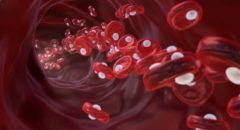
Sufferers of sickle cell disease (SCD) already have it tough enough. A chronic condition that requires ongoing treatment, SCD can cause everything from infections and anemia to sudden, debilitating pain crises.
Unfortunately, it looks like medications for the condition can sometimes add to the trouble.
But here’s the good news. If you or someone you love has SCD, there are many ways to overcome the medication side effects. Whether they cause rash, fever, or infection risk, you are not without help.
Here’s how to beat the side effects of these vital medicines.
Hydroxyurea
Used to boost fetal hemoglobin production, this medication can help prevent the formation of problematic sickle-shaped blood cells. This, in turn, can help relieve serious issues of pain, preventing the need for blood transfusions down the road.
But here’s the catch. Hydroxyurea can also cause problems such as rash, nausea, and higher risks of infection due to lower white blood cell counts.
So here’s how to overcome these potential side effects. The first is to take the medication with food and divide it into smaller, more frequent doses. This will help with nausea. For rashes caused by the medicine, be sure to use skincare products and avoid scalding hot showers.
For fever, be sure to monitor how you feel. If a fever occurs, contact your doctor as soon as possible. And for higher risks of infection, your healthcare team can regularly assess your blood counts. Also, be sure to keep your hygiene strong, eat well, and avoid large groups if your immune system is down.
L-Glutamine Oral Powder (Endari)
This amino acid supplement helps bring down oxidative stress in your red blood cells, which means fewer complications from the disease. However, the medicine can also cause everything from nausea to constipation and headaches.
To treat these issues, mix the powder with a drink or food to prevent nausea and stomach issues. Make sure to also ingest plenty of grains, fruits, veggies, and fiber, as these can prevent constipation due to the medicine.
Finally, stay hydrated! If a headache persists, OTC pain relievers can help. Just be sure to discuss with your doctor before you start mixing other medicines to treat the side effects.
RELATED: Sickle Cell Trait vs. Sickle Cell Disease: Why Black People Need to Know the Difference
Voxelotor (Oxbryta)
Prescribed to lessen red blood cell sickling, Voxelotor may be great for treating anemia and preventing vascular issues due to SCD. Unfortunately, the medicine may also be good at causing fatigue, headaches, and diarrhea.
If you’re experiencing gastrointestinal issues, struggling with headaches, or feeling run down, there are several things you can do. Again, stay hydrated and use pain relievers as approved by your doctor.
For diarrhea, hydration is key. Some specialists also recommend trying what’s called a bland diet. This includes things like bananas, rice, toast, and other food items that ease the digestive system. As for fatigue, make sure to get moderate exercise and ample sleep. Sometimes, a simple walk can give you more energy.
Crizanlizumab (Adakveo)
This monoclonal antibody targets a key protein involved in the complications of SCD. Adakveo may prevent sickle cells from sticking to your blood vessel walls by targeting this protein. This is ideal for preventing pain crises and avoiding further damage.
Like the other medications, Adakveo can lead to fever and nausea, so take the same precautions. However, this medicine can also lead to joint pain. To address this unique issue, ask your doctor about pain relievers and physical therapy. For some people, acupuncture, hydrotherapy, and hot/cold compresses can make a huge difference.
Blood Transfusions
In severe cases, blood transfusions may be the best course of action for people with SCD. This is because they allow healthy red blood cells to circulate, which can improve oxygen levels, keep anemia under control, and bring down the number of sickle cells in the body.
As a result, transfusions can address many of the symptoms associated with the disease.
However, blood transfusions can also cause potentially life-threatening problems like excess iron, allergic reactions, and higher risks of serious infections.
When receiving a transfusion, the doctor should ensure everything is sterile, monitoring you for any signs of infection, like fever and chills. If you’re suffering from excess iron, chelation therapy can remove these excesses.
And finally, with allergic reactions, you should always prepare for a transfusion by taking antihistamines or corticosteroids. Speak to your doctor about the best preventative, as these meds can help lessen any allergic reaction.
Your healthcare providers should always be aware of serious allergies, so be sure to keep them informed.
By being proactive, monitoring side effects, and working closely with your doctor(s), you can address the side effects of treatment quickly and safely – and keep your SCD properly treated as well!









